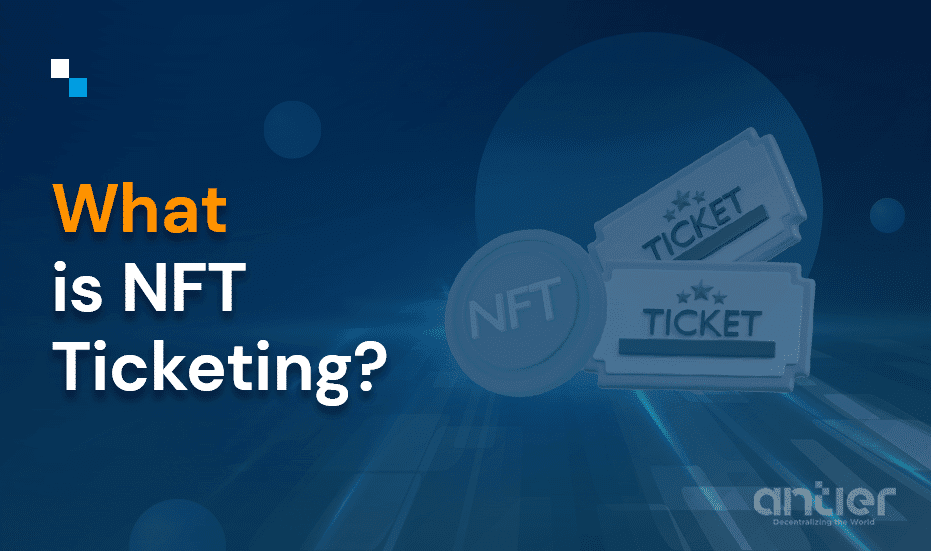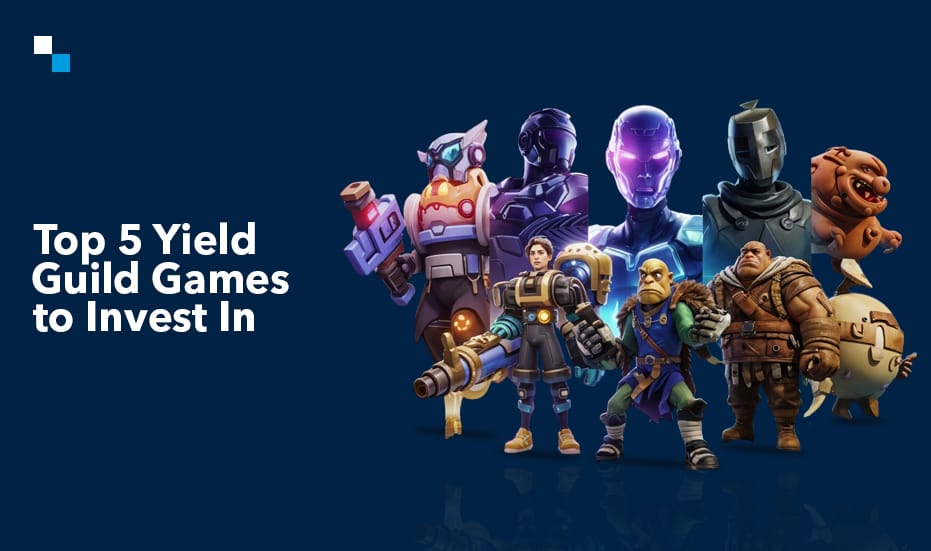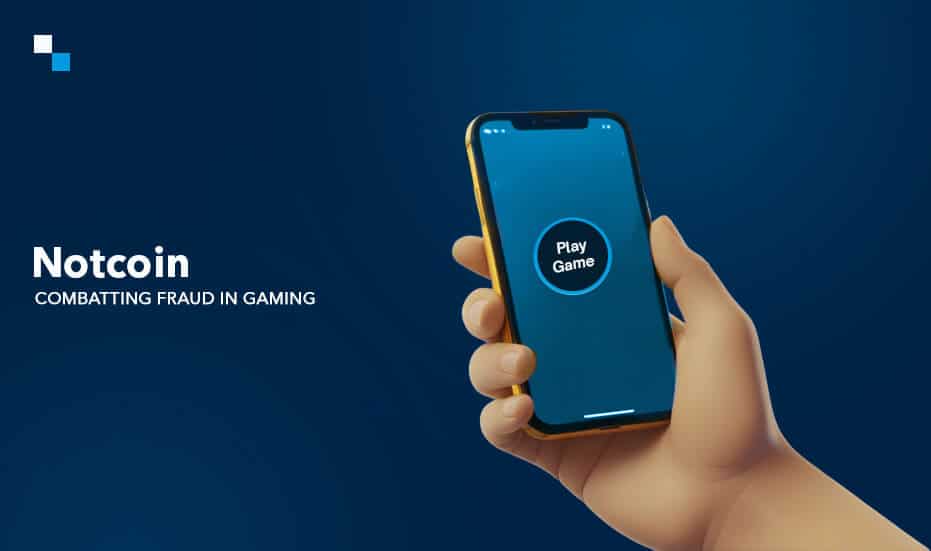
A Guide for Mastering Cryptocurrency Exchange Software
February 28, 2023
How to Develop a Decentralized Application(dApps) in 2023
March 3, 2023Table of Contents
- What is NFT Ticketing?
- How Does it Help the Issuers and the Purchasers?
- Benefits of Blockchain in NFT Ticketing
- How Can NFTs Solve Traditional Ticketing Challenges?
- How Does an NFT Ticketing System Work?
- What are the Applications of NFT Ticketing?
- What is Ticket Scalping – a multi-billion profit loss for event organizers?
- The solution for ticket scalping: NFT Ticketing
- NFT Ticketing with QR codes: A game-changing way to secure ticket authenticity
- NFT Ticketing Development
Keep calm and collect your NFTs! That’s been the mantra of the industry so far that anticipates a great future but lacks clarity over actionable use cases. Among many, tokenizing tickets into non-fungible assets is a promising product that has proven its worth time and again. In fact, the advent of metaverse in gaming and events had an upfront impact on the adoption of NFTs in the ticketing industry.
In this post, we are discussing everything you wanted to know about non-fungible tickets; its scope, platform, advantages and the future in 2023.
What is NFT Ticketing?
NFT tickets are digital assets that hold your access credentials to an event. They can also offer ticket holders additional perks such as meet-and-greets, exclusive merchandise, and more, to create an even more immersive fan experience. On top of helping establish a closer relationship with fans, NFT tickets can provide ongoing royalties for artists, event organizers, and stakeholders.
Verifiable tickets powered by blockchain tech can stamp out fraud and add value for fans. Major sporting events are now considering their adoption, says one startup in the space.
Not to miss, the overall market could capture 25% of the overall ticketing market by 2027.
How Does it Help the Issuers and the Purchasers?
With NFT ticket platform, Issuers can keep a more in-depth record of attendance numbers by utilizing the blockchain as a ledger, while simultaneously interacting with ticket holders in a new and innovative way via NFTs.
Issuers can send out notices, host surprise giveaways, create token-gated sites and services, and more simply by collating data associated with holders of a specific NFT ticket.
Similarly, NFT ticket holders don’t simply receive a ticket to an event, but an immutable and often interactive digital asset that grants their entry into a show or festival. These tickets also grant holders access to exclusive experiences, including fan clubs made up only of holders of similar NFT tickets.
Benefits of Blockchain in NFT Ticketing
At its core, these tickets operate on a blockchain enabled decentralized ledger that stores the details of the owners, and purchasers in this case. Apart from decentralization, it benefits from immutability and the automated smart contracting from the underlying blockchain.
Thus, they can’t be forged, or even exchanged with other digital assets.
A quick check of a cryptographic hash can separate the real thing from a fake in seconds, and records the complete history of the ticket from the beginning of minting all the way through sale and redemption.
This makes it significantly less likely that a scammer could gain access to falsified documents. Moreover, the consumers can easily check if the tickets they are buying are considered legitimate before handing over any money.
This stands to be a significant boon for both consumer protection and industry revenue. Less fraud means more money in the pockets of artists, promoters, organizers and so on.
How Can NFTs Solve Traditional Ticketing Challenges?
A NFT ticketing system can potentially disrupt the traditional ticketing industry by solving the inefficiencies faced by the current methods.
#1 Prevents ticket forgery
Ticket forgery is the leading concern of traditional ticketing. Paper tickets, QR-Codes and centralized digital tickets can be forged or easily stolen. Besides a security threat, the events lose trust among fans.
With NFT ticket transactions on a blockchain, ticket issuers, purchasers and others can easily validate the authenticity. Tracking the ownership is straightforward and thus difficult to forge the details.
#2 Faster production & lesser cost
The cost to create NFT tickets, minting and selling them is significantly lower than the cost of producing traditional tickets. The production time is lesser since there’s no physical machinery or paper management involved. This enables the organizers to mint and distribute tickets within a record time.
#3 Ongoing revenue opportunities
NFT tickets open up the potential opportunity to generate tangible value for all involved. NFT tickets can provide ongoing royalties to the artist and event organizer via smart contract technology.
If a ticket holder sells their ticket on a secondary marketplace, the artist receives a percentage of the resale revenue. Ticket holders can also resell NFT airdrops as a part of the ticket’s built-in rewards.
#4 Lowers chances of loss or damage
Traditional paper-based tickets can be easily lost or damaged. Since NFT tickets are stored in a digital wallet that is accessible via a mobile phone, the risk of losing or damaging your ticket is exponentially lower.
How Does an NFT Ticketing System Work?
As discussed above, NFT tickets are unique, digital tokens that represent ownership of a specific ticket to an event.
Upon a purchase, the blockchain creates an NFT that includes the ticket holder’s information in it.
This NFT helps in gaining access to the event by presenting it at the venue or through a digital gate.
Since the system utilizes smart contracts, it manages the resale value and the revenue generated from the ticket sales. Here, the organizers can use smart contracts to set rules for the distribution of royalties on secondary ticket sales.
For example, on a NFT ticketing platform, the organizer sets up a rule that triggers a royalty payment to the original ticket owner whenever the ticket is sold to a new owner.
Organizers gain more control over the resale value and fees of tickets, which helps to ensure fair compensation for all parties involved in the ticket sale process.
When a buyer makes a payment, a smart contract is triggered and the NFT ticket is sent to the buyer’s digital wallet.
The tickets are then accessible at any time using a smartphone. If the event organizer allows it, NFT tickets can also be resold on the designated NFT ticketing platform.
When someone purchases a resale ticket, a smart contract is activated, and the buyer receives the ticket while the seller receives payment.
NFT tickets provides a secure and transparent way for buyers and sellers to exchange tickets and helps event organizers to manage ticket distribution more efficiently.
Event organizers have the option to use NFT tickets to bypass third-party ticket distributors. They can create the desired number of NFTs on their preferred blockchain network and set the sale or auction price.
What are the Applications of NFT Ticketing?
Sporting Events
Non-fungible tokens (NFTs) offer a number of opportunities for leagues and venues to collaborate on services such as “dynamic tickets.” Dynamic tickets are digital passes that update each time they are used, offering a range of benefits to the ticket owner, such as complimentary bonuses (such as airdrops of additional NFTs), free food and beverage vouchers, and access to exclusive merchandise.
The owners of these tickets can also use them at various events and receive greater rewards for consistent engagement, such as meet and greet opportunities and upgraded seating.
For example, the NBA is interested in offering fans NFT “ticket stubs” that can be used to redeem tickets at an event.
The NFT ticketing system gives programmable stubs to direct a portion of future secondary sales to a location owned by the team that issued the tickets.
This benefits both the fans (who receive tickets that may increase in value) and the NBA (which receives passive revenue from secondary market activity). It is worth noting that the NBA is not yet fully aware of the potential of NFTs for ticketing and other applications.
Metaverse Events
NFTs significantly influence real-world and virtual events like those in the metaverse.
Metaverse events are increasing rapidly. These were organized as the latest fashion event in Decentraland, also included some of the world’s largest fashion brands, such as Tommy Hilfiger, Perry Ellis, Dolce and Gabbana. These brands earned a large sum of money by selling in-game NFT wearables. Additionally, the 2020 virtual Travis Scott concert in the Thus it became the concert with the highest number of attendees in human history.
The NFT tickets were optional to attend such events. However, upcoming events may enable VIP NFT ticketing to avail of exclusive access or benefits. For example, Warner Media bought a large concert venue as an NFT in the Sandbox metaverse, and Universal Music Group recently purchased artist Jamiroquai for the same, and has been a part of various games and live concerts.
Data Monetization Opportunities
The old-school ticket purchase system makes it difficult to keep a record of customer information. Moreover, huge secondary market ticket sales make the whole process of customer data collection tedious. Again, NFTs come to your rescue by tracking ownership of NFT over time.
Thus businesses can collect relevant customer data to boost their revenue through various marketing strategies. For example, if an NFT holder attended an event, they can get airdropped an NFT offering a discount on purchasing tickets for a future event. Moreover, they could be rewarded with free NFT merchandise for attending the original event and increasing participation in upcoming events.
Enhance Community Engagement
NFT ticketing platform brings in persistent engagement in crypto and NFT communities, similar to celebrity fan communities. Through NFT tickets, organisations can effectively amalgamate both communities and create new communities on leading platforms like Twitter and Reddit and upcoming platforms like Discord. In addition, it increases overall fan engagement and profits through future ticket sales.
For smaller organizations, pre-sales of NFT tickets, particularly those with royalty splits, can help raise money for upcoming events, such as concert tours. Plus, they can be a great way to raise money for charity. Finally, NFT tickets help create more actively engaged communities, improving the marketability and sales of future tickets and merchandise.
Since it is easy to create NFT tickets, they can also become valuable collectibles that can be traded on the secondary market. In addition, these tickets also represent the future for in-metaverse events in games like The Sandbox and Decentraland, which are only growing more popular over time. With the advent of dynamic NFTs, it is possible to convert an asset from a fungible to a non-fungible token, and their characteristics can change and develop over time.
What is Ticket Scalping – a multi-billion profit loss for event organizers?
There is a significant amount of fraud in the ticketing industry, with many people selling fake tickets and others buying tickets in large quantities and reselling them at exorbitant, inflated prices.
Ticket Scalping is the mal practice of buying bulk tickets of a specific event, creating a shortage and then reselling them at higher rates. This is also known as Ticket Touting or simply, Ticket Blacking. Today, it has plagued the events industry and is widely present at concerts, sporting events, conferences, musical shows, movie premiers etc.
Exactly why the demand for NFT ticketing has increased off late.
Given the controlled supply of tickets, they are sold at an inflated rate of up to 80% and sometimes even 100% to the die-hard fans. It’s like manipulating their love for the event.
While we are at it, ticket scalping caused USD 15.19 billion in losses to the ticketing industry in 2020.
Ultimately, it leaves the artists and the organizers with significantly lesser earnings. Not to miss, it’s the fans that are at loss too for they are compelled to seek the experience at much higher price.
In an effort to address the issue of scalping, ticketing agencies, musicians, and event organizers are seeking more effective ways to prevent scalpers from profiting off the limited number of tickets they obtain and resell.
NFT Ticketing System: The solution for ticket scalping
As the name suggests, the new approach tokenizes the ticket into an NFT whose details including the owner and the event are all recorded on the blockchain. This makes the ticket exclusive and immutable.
For organizers, this is a full-proof secure method to authenticate the tickets. Subsequently, it gets increasingly complicated for the scalpers to replicate the tickets.
Furthermore, the event organizers are able to ensure that every ticket goes to the customer who has purchased it from authorized outlets.
With NFT tickets, the issuer can track the exact transfer of the ticket from one wallet to another, allowing them to put in place measures that can halt both large-scale scalping and excessive trading.
NFT Ticketing with QR codes: A game-changing way to secure ticket authenticity
An NFT ticketing platform is a promising solution to the problem of ticket scalping, which has become prevalent as events have started to return to the social scene. By using NFTs, organizers and artists can sell and market their tickets with greater security and authenticity, as the technology makes it difficult to produce counterfeit tickets.
In addition, event organizers can benefit from incorporating NFT ticket QR code into their merchandise, as this can serve as an effective way to encourage their clients or followers to attend their events.
By scanning the NFT QR code on their memorabilia or other products, potential attendees can easily access and purchase tickets for the event. Overall, the use of NFTs in the ticketing industry holds great potential for improving the ticketing process and helping to prevent fraud and counterfeiting.
NFT Ticketing Development
As we read so far, NFT ticketing offers a range of benefits for organizers, ticket holders, and fans alike. It can help increase revenue, build more engaged communities and create new opportunities for fan engagement. It is worth exploring for any event organizer looking for new ways to monetize their events and improve the ticket buying experience for fans.



